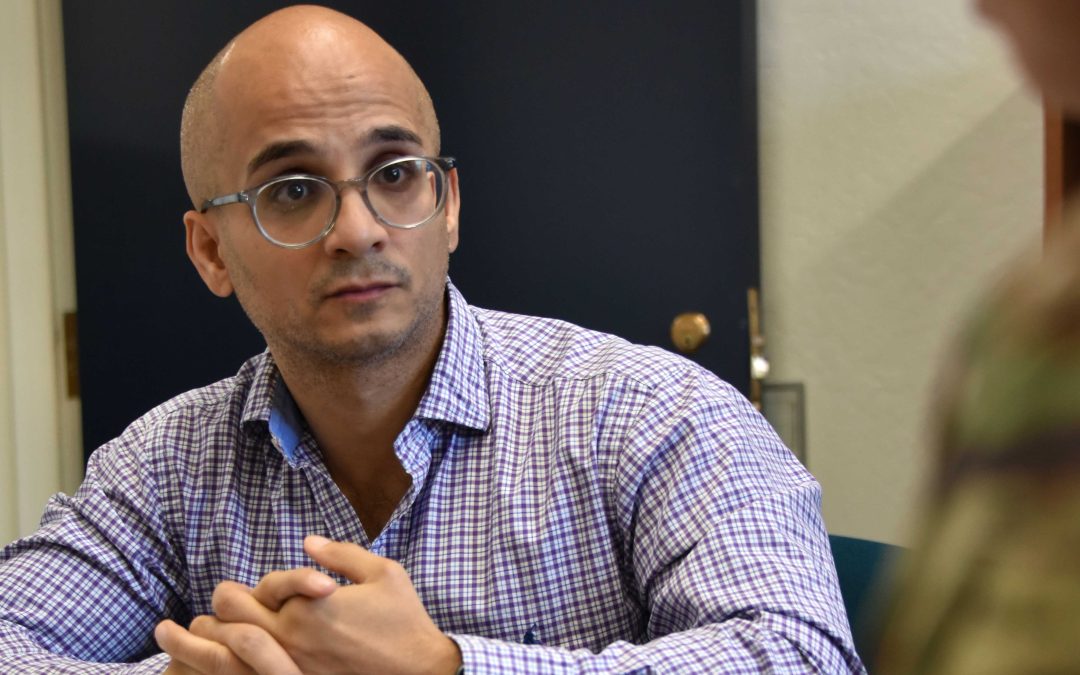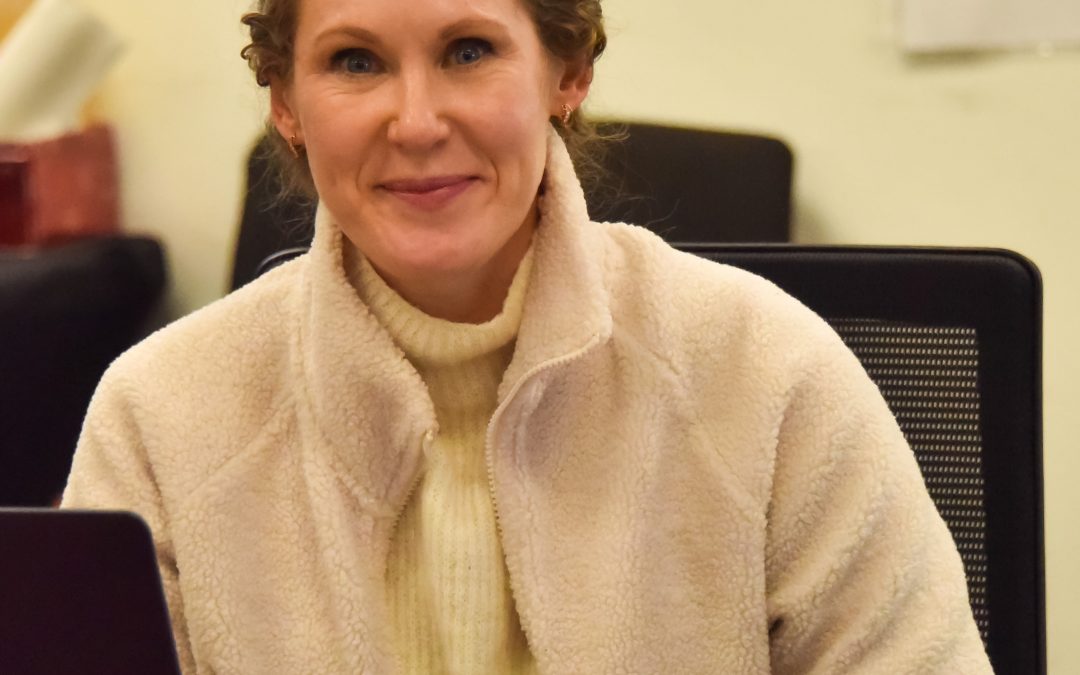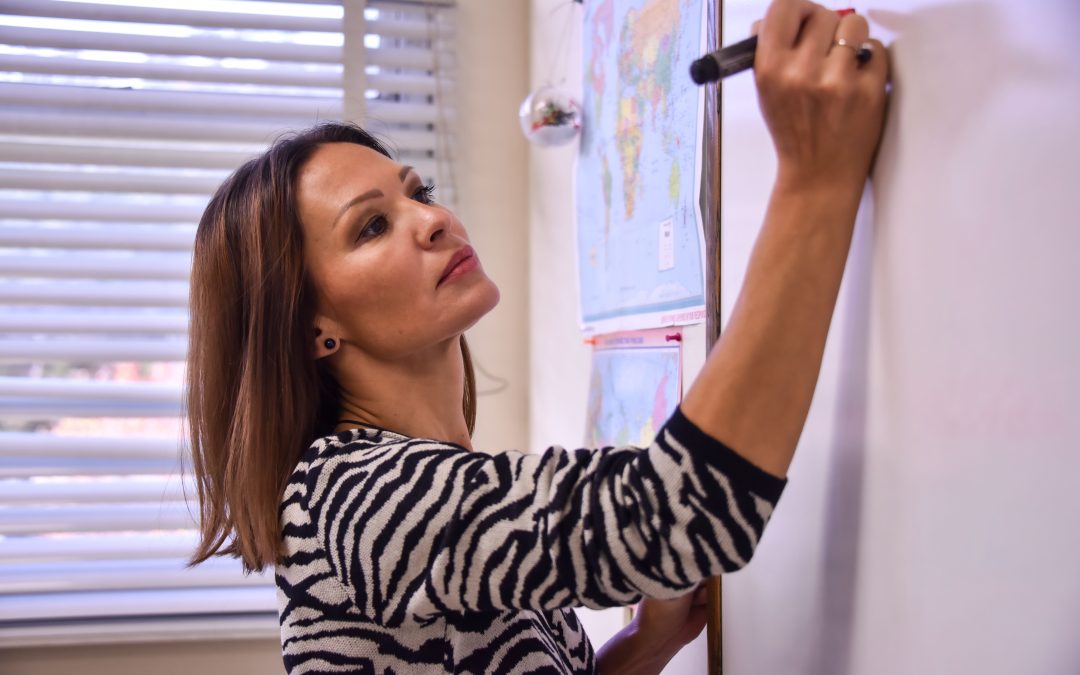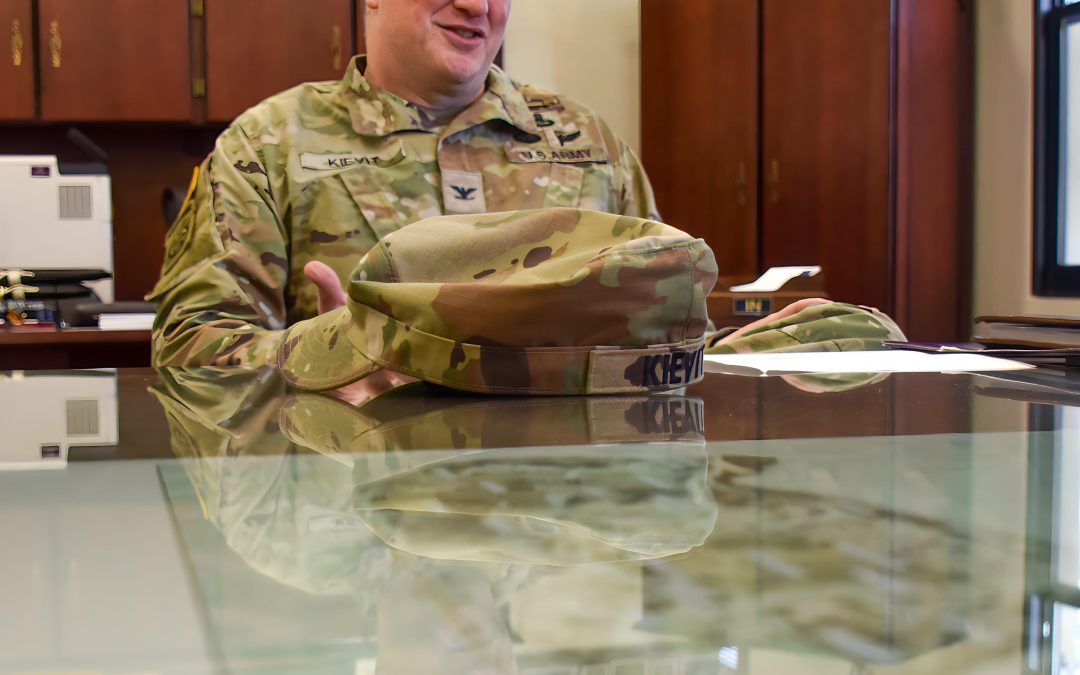By Tammy Cario
Modern Standard Arabic, considered written standard for language across the Middle East, could be compared to the Queen’s English. When the students at the Defense Language Institute Foreign Language Center learn Arabic, they begin with MSA and then go on to learn what is considered the dialect for a specific region.
While some people might think it’s confusing, Ayman Alqasem, a Levantine Arabic instructor with the Middle East I schoolhouse at DLIFLC, doesn’t think so. He compares the use of MSA to reading the New York Times.
He said he feels like he needs “a dictionary next to me while reading one of their articles because it’s just loaded with all those low-frequency fancy words,” explaining that the newspaper is full of language not frequently used by the average American on a daily basis. “That’s how I feel about MSA and Levantine. It’s essentially the same language in my opinion.”
It was with that certainty that Alqasem, along with his teaching team, Muhammad Hashwi, Marah Al-Masri, Rolla Alaydi and Nadine Domloj helped their class of 11 students graduate on Aug. 8, all having met or exceeded the DLIFLC standards.
To put that into context, only two Arabic classes in the last two years have graduated without losing a student for academic or administrative reasons. Another defining aspect of this class is the high scores. The closest Arabic class to finish with all their students in the last 12 months didn’t have the high test scores by half.
“I think there were many factors that aligned,” said Alqasem. “Great support from leadership, and great support from the other instructors. One of the most important factors is the students themselves.”
One of those students, Petty Officer 2nd Class Ahmed Amin, came to DLIFLC with some experience with Sudanese Arabic.
“Levantine is somewhat similar [to Sudanese Arabic],” said Amin. He grew up in the U.S. with parents who spoke Sudanese, so he knew the sound of the language to hear it but not to read or write. “There are some words that are used differently between the two languages. When you get into the grammar structure, it’s a little bit different as well.” To Amin, the Levantine language has a lot of slang. “I see it as more fluid. All the dialects have slang,” he said, but to him, Levantine was more so.
With these challenges in mind, Alqasem and his team brainstormed teaching plans that he believed would really help the students.
“I came up with a lot of new ideas that were not tried before and a lot of teachers resisted those ideas,” he said. “I mean, change is always difficult. But Wael Matar [the chairperson of the Levantine department] was 100% supportive.”
“The team and I invested a lot of hours in creating assignments [using technology]. I feel sometimes that the benefit that technology provides is not utilized,” Alqasem said. “So for example, an assignment that is written that you’re going to send electronically has no real added value here.”
He went on to explain that immediate feedback is what makes technology so important. “Most of the time by the time students receive feedback, they have already received other homework. They totally forgot what homework they submitted the night before. So what I did was use technology to give immediate feedback. As soon as the student puts in their answer, they’ll know immediately if it’s right or wrong.” That’s great, he added, because the students will keep at it until they get it right.
Another tool Alqasem used was his fast typing skills
“In speaking sessions, I transcribe every single word the students speaks live on the smartboard,” he explained.
“It was very good,” said Amin. “He’d ask you ‘What are the mistakes you made?’ People are nervous when they speak but when they’re reading it, it becomes clear. They’re like, ‘Oh, I should have said this instead.’ It’s like self-correcting yourself.”
“Students find it very intriguing,” said Alqasem. “They see their errors visually so it helps the students identify them and prevents them from repeating [the errors].”
Monitoring the student’s progress is part of his job, but for Alqasem, it’s more than that.
“It’s not only about effort, the question is, is the effort moving the needle?” he said. “I go month by month and if the needle is not moving, or maybe not moving in the right direction, then I change the strategy.” Those efforts included ensuring every student had the right teacher-mentor when they needed it. If, for instance, a student was struggling with speaking Levantine, he would assign one of the teachers certified in oral proficiency to help them.
Between the instructors, their teamwork, the support and the incredible efforts of the students, their class surpassed expectations by anyone’s standard.




